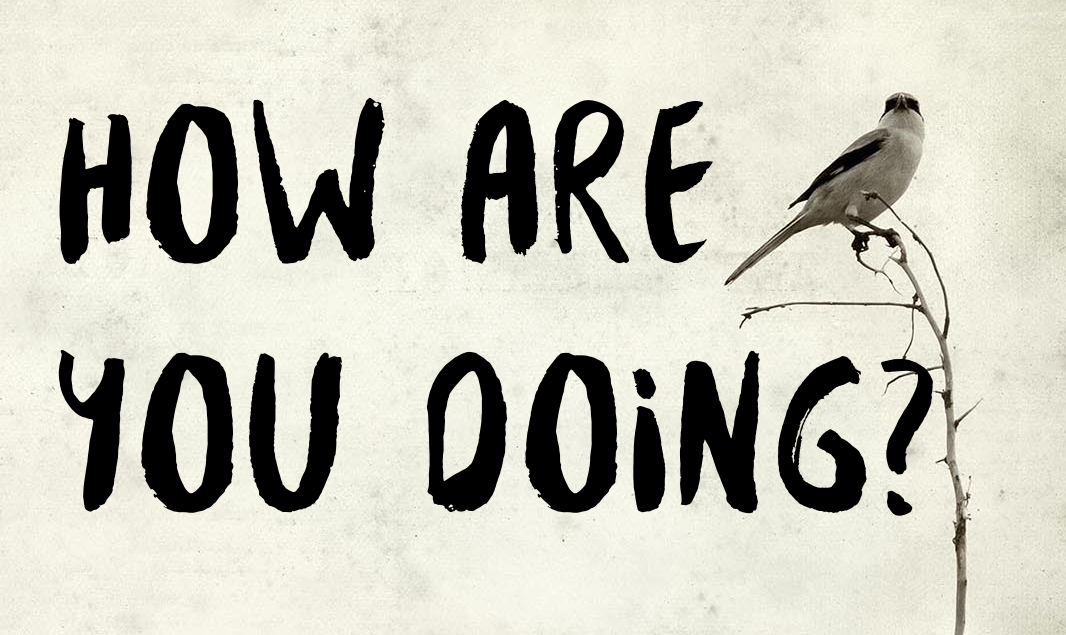Responding to Life's Hardest Question
I hesitate whenever I’m asked this question. I partly blame this on society’s strange social norms (does the person asking really want to know?) and partly on my upbringing (my mother taught me to grunt instead of reply to see if cashiers noticed). But I will admit that my delayed response is also the result of needing more time to develop an answer. I am asked this question by others far more often than I ask it of myself.
When a close friend asks how I’m doing, the question takes on new meaning. I believe they're asking me to share the status of my soul or my being. Even so, I will sometimes choose to talk about my latest doings of life which doesn’t reach the heart of the question. Talking about my doings doesn’t always address the health of my soul because my doings may be fine, but my being may not be (and vice versa).
To make this question even more confusing, consider it within the context of pursuing Jesus. “How is your spiritual life?” is a question that understandably stumps many people. I think it might be more complex than the unwritten rules of baseball. Once again, responses to this question often focus on doing actions such as Bible reading, prayer, and church involvement. Our souls are shaped by spiritual habits, but they don’t tell the whole story.
The questions that we ask each other should reflect what we really want to know. “How are you doing?” may work in some cases, but if we want to stir up self-examination, I think we can do better.
Dallas Willard and John Ortberg crafted two insightful questions that I discovered several years ago. They aren’t perfect, but they dig beneath the surface and serve as excellent conversation starters:
- Are you becoming increasingly more irritable?
- Are you becoming increasingly more discouraged?
When I ponder these questions, the activities of my life collide with the condition of my soul. I discover the connection between my doing and my being. This helps me consider the reasons and causes for why I’m feeling the way that I am. For example:

